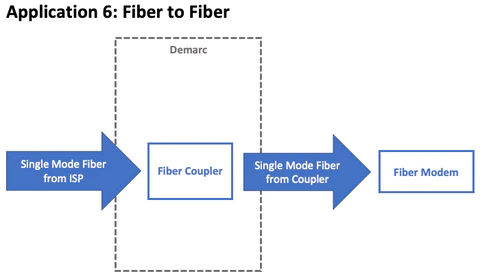In this blog post we will discus about Which Tool Should You Use to Extend Network Services Beyond the Demarc? Businesses are continually looking for ways to extend their network services beyond the demarcation point in today’s fast expanding technology landscape. The demarcation point, often known as the “demarc,” marks the line at which the customer’s network becomes their responsibility. This stage of the process is crucial because it prepares the organization for the distribution of network services. But the question is, which tool should you use to extend these network services successfully beyond the demarc? In this blog post, we’ll examine the choices you have and direct you toward choosing something that suits your goals as a business.

Recognizing the Problem
It can be challenging to extend network services across the demarcation line. It entails making sure that there is constant connectivity, security, and effective data transfer throughout the entire firm. The need for dependable network extension technologies intensifies as firms expand and adopt remote work practices. Let’s examine the leading candidates who can meet this challenge:
If your looking for jobs then you can visit here for amazon jobs
Virtual Local Area Networks (VLANs)
A strong tool for extending and segmenting network services is VLANs. They enable you to logically segment a physical network into a number of virtual networks, thereby boosting security and streamlining network administration. Different departments or teams can share the same physical infrastructure while still having their own private networks thanks to VLANs. This division simplifies network monitoring and improves data security.
Virtual Private Networks (VPNs)
Businesses that want to extend their network services securely over the internet frequently turn to VPNs as a solution. With a VPN, data security and integrity are guaranteed between the user’s device and the company’s network. Since more and more people are working remotely, VPNs have become essential for giving employees safe access to the business network from anywhere in the globe.
If you wants to know which savings account will earn you the least money visit here
Software-Defined Wide Area Networks (SD-WANs)
A novel method of network extension is SD-WANs. To effectively route data over different network connections, including MPLS, internet, and cellular, they use software-defined technologies. This dynamic routing lowers expenses while improving performance and dependability. Organizations with several branches or remote sites can benefit most from SD-WANs since they provide centralized control and streamlined network management.
Cloud-Based Network Services
The spread of network services has entered a new era thanks to cloud technologies. Businesses may host apps, services, and even entire networks on remote servers thanks to cloud-based services. This strategy does away with the requirement for a substantial physical infrastructure, enabling quick scalability and flexibility. For startups and small enterprises looking for cost-effective solutions without sacrificing performance, cloud-based network services are very beneficial.
Choosing the Right Tool
The size, objectives, and infrastructure of the company are just a few of the variables that must be taken into consideration when choosing the best solution to extend network services outside the demarcation. Here are some things to think about to help you decide:
Flexibility and Scalability
Cloud-based solutions and SD-WANs may be the best option for your business if it plans to grow quickly or has fluctuating bandwidth needs. Without having to deal with finding and setting up new technology, these choices can quickly adjust to changing needs.
Integrity and Security
VPNs provide a safe and encrypted connection for companies that handle sensitive data or must adhere to rigorous rules. They protect against potential breaches by ensuring that data is kept private while in transit.
Resource Management and Allocation
Granular control over resource allotment and network segmentation is offered by VLANs. For businesses with various divisions that need their own network environments, this can be helpful.
Geographical Spread
SD-WANs provide effective traffic routing and centralized management if your business has numerous branches or outlying sites. By doing this, the organization’s service delivery is certain to be consistent.
Conclusion
An essential component of contemporary company operations is the expansion of network services outside the demarc. The tool you use should be compatible with the objectives, scope, and infrastructure of your company. Whether you choose VLANs, VPNs, SD-WANs, or cloud-based solutions, each one has particular advantages.
Making decisions in an environment where connectivity, security, and efficiency are crucial requires thorough research. As you compare the available solutions, take into account scalability, security needs, resource allocation, and geographic dispersion. You may safely choose the technology that drives your company toward a flawless and successful network service extension by carefully assessing these elements.
What tool are you going to use to expand your network’s services past the demarc? Understanding the requirements of your business and utilizing the strength of contemporary networking technologies are the solutions.
Where is redeem code
Karachi malir
Please redem code dedo UC wal
pirzadasajjadali51@gmail.com
malir Karachi
Redeem code
Where is redeem code